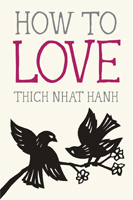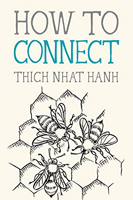
Fear: Essential Wisdom for Getting Through the Storm (2014) is a book by Zen Master Thich Nhat Hahn. It provides guidance on coping with fear in our daily lives, including our fears of loneliness, being abandoned, change, separation, uncertainty, being sick, and dying.
In Fear, Thich Nhat Hahn has a gentle and understanding way of presenting his advice and teachings. He explains that we must not let ourselves dwell in the past because the present is our true home, saying,
“I am aware that happiness depends on my mental attitude and not on external
conditions, and that I can live happily in the present moment simply by
remembering that I already have more than enough to be happy.”
Thich Nhat Hahn explains that we should not be limited by our pasts, our presents, or even our futures. He describes how people replay old events from the past, and then react to new events as though they were the old ones. To counter this tendency, he reminds us that we can react to new events differently as fresh moments and to be grounded in the present. Although we can explore our pasts deeply, it is important not to dwell in sorrow or regret.
To cope with loss and death, Thich Nhat Hahn reminds us that those we love have not disappeared, but instead have been transformed into new forms. We must continue to enjoy life because those who have died are still close to us and have not really disappeared from our lives. In thinking of loss in this way, we can overcome our grief.
One of my favorite quotes from the book is the following advice he gives about examining our feelings:
“Observe your feelings—whether they are pleasant, unpleasant,
or neutral. Feelings flow in us like a river, and each feeling is a drop of
water in that river. Look into the river of your feelings and see how each
feeling came to be. See what has been preventing you from being happy, and do
your best to transform those things. Practice touching the wondrous,
refreshing, and healing elements that are already in you and in the world.
Doing so, you become stronger and better able to love yourself and others.”
Thich Nhat Hahn describes the Buddha’s teaching that suffering can be caused by having wrong and erroneous perceptions and gives the following example, “You see a snake in the dark and you panic, but when your friend shines a light on it, you see that it is only a rope. You have to know which wrong perceptions cause suffering.”
This example struck me. As a child, I was walking in a park with my younger brother. I saw what I thought was a rattlesnake. I was afraid and grabbed my brother’s hand to protect him from the snake. As I looked more closely at the “snake,” I realized that it was just a broken beaded necklace and not a snake after all, and my fear disappeared.
Purchase and read books by Thich Nhat Hahn from his Mindfulness Essentials Series:




© penciledpage.com





Post a Comment
Share your thoughts